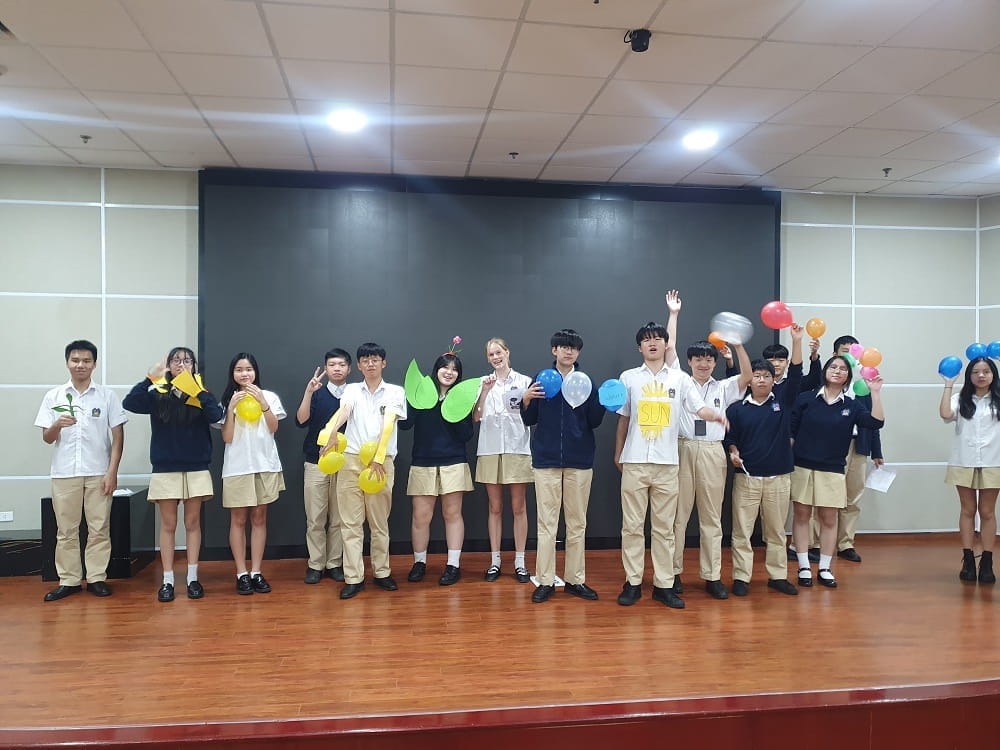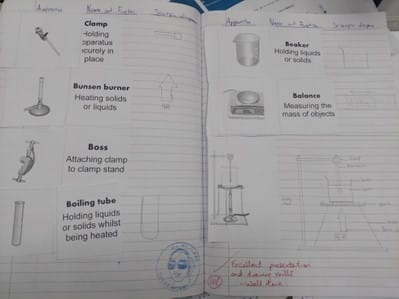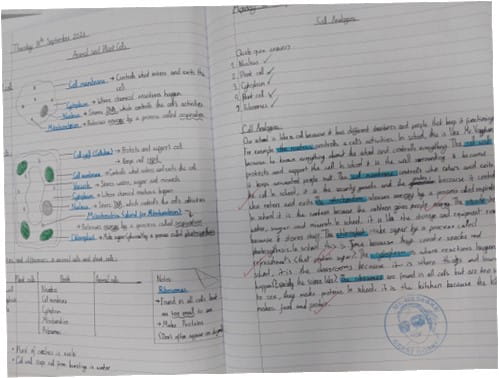Dear Secondary School Community,

Dear Secondary School Community,
As we approach the middle of Term 1, it is time for our Year 9 and Year 11 students to embark on an important journey in their educational lives—selecting their IGCSE and IB Diploma subjects.
The choices our students make at this stage can greatly impact their future academic and professional paths. It is crucial for them to have a deep understanding of their interests, strengths, and aspirations. This self-awareness will guide them to make informed decisions about their subject choices.
.jpg?rev=08b256da13db44d88ce87a8df3d40b71&hash=72F7EE873CEA1DB895F98A749DC3EB09)
To facilitate this process, we are thrilled to announce our upcoming Options Evening on Thursday, October 5, where all parents will be invited. This event will provide a comprehensive overview of the available subjects, the curriculum, and the potential career pathways associated with each choice. It is an excellent opportunity for students and parents to engage in meaningful discussions, seek advice from our experienced faculty, and explore the possibilities together.
We strongly encourage students to take the time to research their options thoroughly and engage in open conversations with their parents. Making well-informed decisions requires careful consideration and reflection. Our aim is to ensure that every student feels empowered to select subjects that align with their passions and future goals.
We look forward to welcoming you all to the Options Evening and working together to support our students in making these important decisions.
Yours sincerely,
Chris Newman
Head of Secondary
Once I meet with a student, my job is to listen carefully, support them to develop a clear understanding of what their issues are, and then find new ways of meeting their challenges. Other goals of the therapy process are to help students feel more comfortable with who they are and have a better understanding of what a healthy relationship looks like. I am currently undertaking further training in play therapy as a way of working with students who are keen to have counselling but do not find discussing their problems easy. I’m really enjoying applying these new skills in the counselling room.
I love being able to make a positive impact on our students' wellbeing. However, my influence is small compared to that of a parent. The best way to equip your child with positive mental health is to spend regular quality time with them. Parenting can be extremely challenging, but children will appreciate you making the effort to understand them, have fun with them, and appreciate them for who they are. The benefits of this may not be evident now, but they will provide a solid foundation for your future relationship with them.
Similarly, children may not seem to appreciate the boundaries that we as parents put in place, but this structure, in terms of regular meals, regular bedtimes, and restrictions on screen time, gives our children the foundation to experiment with who they are and what they like and find their own way. Look out for upcoming workshops with me on positive behaviour strategies for our children.
Year 10 Photosynthesis
Year 10 students made a huge effort as they created their own props and performed a short skit about Photosynthesis last week. Well done Year 10s for your enthusiasm and creativity. It was great to see some students take leadership and all students work together.

Visual Arts 28th September
Year 12 students took a trip to The Vietnam Fine Arts museum during their Visual Arts lesson this week. The purpose of the trip was to encourage the students to use the local galleries and art spaces in Hanoi as research tools. Not only are they great for research but can deepen the students understanding of local art and widen their cultural appreciation. Many of the class had never visited an art gallery, so it was a new experience! They chose a piece that inspired them and sketched it out, considering the choices made by the artist in creating the piece. We discussed the historical, political, social and religious contexts that have informed the collection that we see today. The students really enjoyed the trip and said they would definitely go back in the future to research and get inspiration for their artwork.

Viet Studies in Year 7
On 25th September, we did art and craft activities for the Moon Festival. These activities encourage students to create artwork inspired by the Moon Festival. They can draw or paint images of the moon, harvest scenes, or traditional festival decorations. These activities provide students with a deeper understanding of Vietnamese culture and traditions associated with the Moon Festival. They also promote creativity, teamwork, and appreciation for the customs and values celebrated during this important event.
Year 10 ESL
Today Year 10 students took part in a whole class feedback and self-assessment session for their previous ESL writing task – informal email. The students were able to identify the improvements needed for their writing and then constructively reflect on how they found the task. This task provided students the opportunity to think not only about what they needed to improve, but also what aspects of the task they found challenging, including how to think about time management and preparation.

This was a meaningful opportunity for the students to be reflective and to self-assess their own learning process. Moreover, I was able to analyse their writing skills in more detail, selecting specific points to work on for future classes and helping to provide the students with individual constructive feedback. For the next class a greater focus on style and register was identified, while also providing valuable data about how to incorporate various grammatical structure tasks into their future ESL writing classes.
7D Science
To start the year 7D have been learning important skills in science including lab safety rules, hazard symbols, drawing scientific diagrams of apparatus, and method and risk assessment writing to prepare them for investigations they will be carrying out throughout the year. Bao Nam Nguyen has demonstrated excellent learning strategies and skills including being able to apply his learning of drawing scientific diagrams when drawing a diagram of the apparatus used to investigate the time it takes to boil water with different Bunsen burner flames (see below).

7D have also been learning about the structure and function of different cells including animal, plant, bacteria and yeast cells. They have produced annotated diagrams of the cells and their subcellular structures, made 3D models of specialised cells including ciliated epithelial cells, red blood cells and neurones. They have also practiced their microscopy skills by producing and viewing slides of stained onion epithelial tissue as well as viewing their own cheek cells under light microscopes.
Sometimes in biology it is useful to use analogies to explain difficult concepts. We can also use analogies to assess whether something has been understood. Students wrote their own analogies to explain how the school is like a cell and how different features of our school are like different parts of a cell. Below is an excellent example of annotated cells and a clever analogy written by Khanh Nhu Le.
